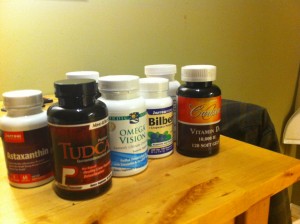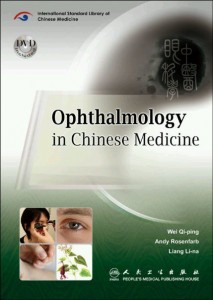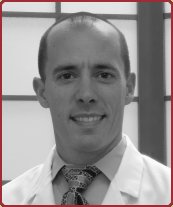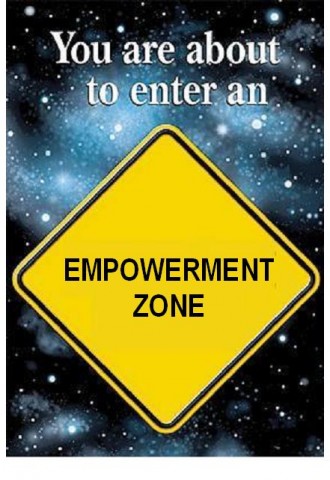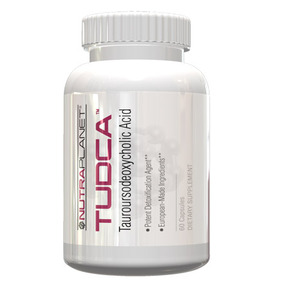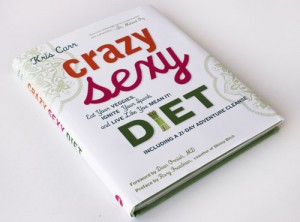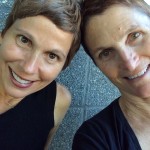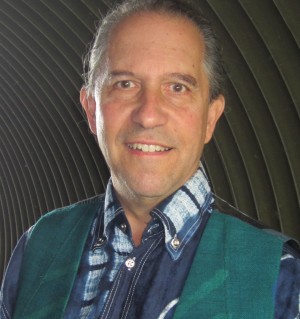 I first met Dr. Damon Miller five years go when I decided to search for an alternative treatment for my Retinitis Pigmentosa. Dr. Miler, who is a board-certified MD, naturopath and acupuncturist, offers a comprehensive RP treatment program that was developed by Grace Halloran, a pioneer in holistic healing for eyes and the author of the book, Amazing Grace (which is very inspiring).
I first met Dr. Damon Miller five years go when I decided to search for an alternative treatment for my Retinitis Pigmentosa. Dr. Miler, who is a board-certified MD, naturopath and acupuncturist, offers a comprehensive RP treatment program that was developed by Grace Halloran, a pioneer in holistic healing for eyes and the author of the book, Amazing Grace (which is very inspiring).
I traveled to Palo Alto to meet him and started on his Better Eye Health Program (a home treatment program which includes eye exercises, acupressure, color lamp therapy, micro-current stimulation, stress management and a variety of vitamins and minerals.) But I ignored the key underlying component to his program: Diet. It just seemed so hard to give up the foods I craved and it was difficult to comprehend that my diet could actually be causing me to lose my eyesight. When I decided to get serious about my vision-healing quest earlier this year, I began researching diet and its impact on degenerative diseases. The more I’ve read, the more Dr. Miller’s message has clicked with me. He recently took time out of his busy practice to talk to me about diet and eye health. There’s a lot to it and I’ll cover more in future blog posts, but this interview offers a good starting point.
IR: Why does your eye health program focus so much on diet and nutrition?
Dr. Miller: The part of the program we don’t talk about much because it puts people to sleep consists of two key factors: Epigenetics and adult stem cells.
When it comes to degenerative disease like RP or macular degeneration, there is a genetic predisposition in everyone who has them. But the question to ask is this: How is it that, even though people were given this faulty gene at birth, they don’t have trouble with their eyesight until much later in life? What researchers have discovered is that the key factor that determines whether a bad gene will stay turned off or will get turned on comes down to epigenetics – which is the environmental factors(internal and external) that activate a faulty gene. As it turns out, your genes are not your destiny.
Let’s use breast cancer as an example because of the enormous amount of research and studies that have been done. If you go to Sub-Saharan Africa or places in the Middle East, breast cancer was virtually unknown until recently—even though women who live there have the same prevalence of the breast cancer genes. But once they move to Europe, Canada or the U.S., have lived there for a while and have adopted our Western diet and lifestyle, they start having the same instance of breast cancer. Researchers have discovered that diet is the biggest determinant in whether someone will get breast cancer. The same holds true with eye diseases, diabetes, heart disease–you name it.
When it comes to combatting degenerative eye diseases such as RP, there are things other than diet and supplements that you need to do to support adult stems cells so they can regenerate and repair. There is no magic bullet—but diet is one of the best tools you’ve got.
IR: How do people with RP know what to eat?
Dr. Miller: That’s a good question. I really sympathize with everyone—including myself—who tries to understand what constitutes a good diet verses a bad diet because there is such mixed information out there. One person with a respectable voice says one thing, and the other respectable voice says the exact opposite. The state of nutritional science in this country is dismal and driven a lot by the food industry. I really respect Michael Pollan, the journalist who writes about food, and I think his advice is the best advice out there: “Eat food. Not too much. Mostly vegetables.” So what does he mean by “eat food?” He means, eat real food. If it comes with a wrapper that is screaming how healthy it is and has ingredients you’ve never heard of, stay away. If you are about to put something in your mouth that your grandmother wouldn’t recognize as food, don’t. Don’t eat chemicals, preservatives, processed sugars and fats or food coloring. Instead, eat fruits, vegetables, poultry, fish, seeds and nuts. There are reasons for all of it, but if you just do that—if you just eat the kind of food our hunter and gatherer predecessors used to eat and nothing else—you’ll do a world of wonder for your health.
IR: Can you talk about food sensitivity and eye health?
Dr. Miller: Food sensitivity is the other part of healthy nutrition and that part is a lot harder because it’s individual—and often times you may not even be aware that you’ve got an issue. If you have sensitivity to wheat or the proteins in dairy products, for example, it may not be affecting your gut at all. But what it’s doing is causing low-level inflammation, which in turn prevents your body from repairing using your adult stem cells and prevents you from keeping the bad genes turned off. It would be wonderful if every food we were sensitive to gave us an upset stomach. Unfortunately, in most people, it won’t manifest in that way. But if you play around with your diet and experiment with an elimination diet, it quickly becomes apparent what foods make you feel a lot better and what foods make you feel sluggish or just not your best—this is a lot of what we do in my Healthy Eating Workshop. The key, once you’ve figured out through trial and error which foods aren’t good for you, is to eliminate those items from your diet forever. Because if you are eating even a tiny bit, it will keep the reaction alive and our goal is to stop the inflammation and reaction. There are stool tests and other tests that can help you determine what foods you are sensitive to. A good place to start is with a Blood Type diet. The food lists that are appropriate for your blood type are not 100% accurate, you still need to experiment–but it’s a good place to start.
IR: Any Parting Thoughts?
Dr. Miller: A lot of taking care of your health is common sense and things people have heard over and over again — you just need to do them and it can have a huge effect. I’ve heard people say, “If nutrition so important, why isn’t my doctor talking to me about it?” I just shrug my shoulders. I can’t answer that. There is good peer reviewed research on this, but most doctors seem unaware of it. I guess a lot of it comes down to our health insurance system and the way doctors are paid. There is very little incentive for doctors to spend the time focusing on diet and lifestyle with their patients.
The other part of all of this that we haven’t discussed is emotional well being – which can have a huge impact on your immune system and overall physical health. (I’ll cover this in a future blog post).
For more information on Dr. Miller’s eye health program and ongoing information regarding diet and lifestyle, visit http://bettereyehealth.com and provide your email to get into his database and access backend information
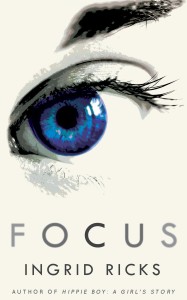 For those of you who are wondering…
For those of you who are wondering…
I started on Dr. Miller’s home treatment program but didn’t follow through with everything because it requires a serious commitment and after awhile, it just seemed like too much work. And, as mentioned, I’m only now beginning to grasp the critical importance of diet. Even so, I did follow his program in bits and pieces over the past five years and lost only a slight amount of vision in that time, compared to a sizeable loss the four years previous to contacting him. I’m now back on track with most elements of Dr. Miller’s program, which incorporates eye exercises and acupressure that are also recommended in traditional Chinese medicine.
Dr. Miller also helped me a great deal with emotional health, which I wrote about in my memoir, Focus. If you are interested in reading it, the eBook is on sale for 99 cents on Amazon and BN.com through Friday, September 27thth.


